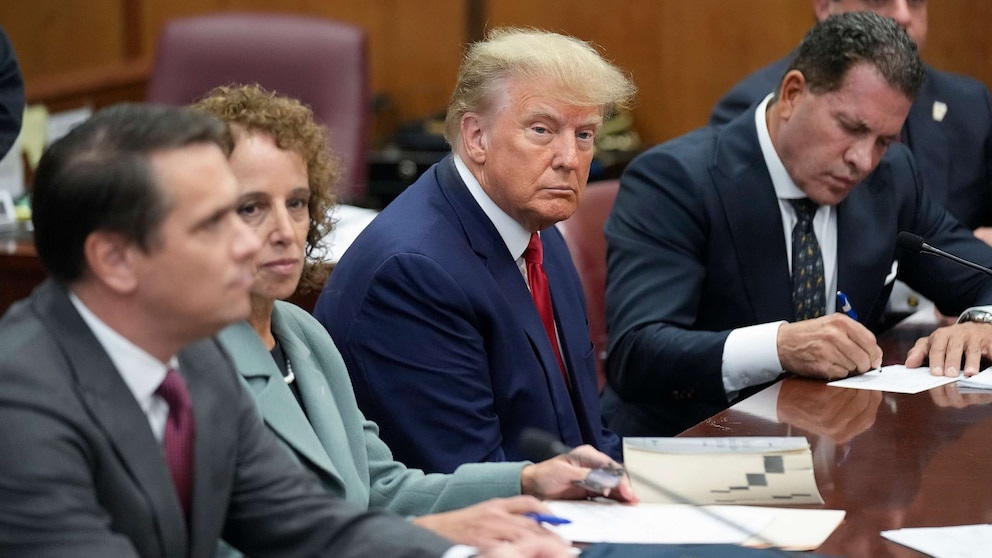I’m indebted to the Washington Post’s Philip Bump for laying out precisely why Donald Trump is guilty of felonies in the Stormy Daniels hush money case rather than just misdemeanors. And he points to something Trump’s lawyer Todd Blanche did in his opening statement on Monday that will make it easier for the prosecution to win its case.
To turn false business records charges into felonies, the prosecution needs to demonstrate that the intent was to further or conceal a different crime, and that could be either to avoid taxes or hide a campaign finance violation. Or, it could be what prosecutor Matthew Colangelo claimed in his opening remarks.
“The defendant, Donald Trump, orchestrated a criminal scheme to corrupt the 2016 presidential election. Then he covered up that criminal conspiracy by lying in his New York business records over and over and over again,” prosecutor Matthew Colangelo told jurors.
Now, you might think that it’s not so easy to define what “corrupting” an election entails, but the Trump defense team acknowledged that Trump’s intent in entering a scheme with the National Enquirer to “Catch-and-Kill” negative stories was to “influence” the election.
“There’s nothing wrong with trying to influence an election,” Blanche told jurors Monday. “It’s called democracy.”
The rub is that the issue is filing false business records to cover up illegal or unreported campaign expenditures and Michael Cohen has already pleaded guilty to causing an illegal campaign contribution in the Stormy Daniels affair. The primary defense against this is that Trump wasn’t making a campaign expenditure at all and wasn’t seeking to influence the election but rather was trying to prevent personal embarrassment or problems in his marriage. Cohen didn’t even try that defense, and he went to prison.
So this is a bit of semantics, really, because it’s not a crime to try to “influence” an election, and it’s not a crime to enter into a nondisclosure agreement. It’s not even necessarily a crime to create a scheme whereby a publisher will buy unflattering stories about you and not publish them. But if you don’t do your campaign finance paperwork right, then all of it can become part of a criminal conspiracy. And Trump added not getting his New York State business records right to the mix, which is what makes it Manhattan District Attorney Alvin Bragg Jr.’s business.
So, it’s very much not in Trump’s interest to have his criminal defense attorney effectively concede that the National Enquirer scheme was intended to influence the election.
As Bump points out, there’s a second component the prosecution needs to prove, and that is that Trump directly caused the false business records to be filed. Maybe some reasonable doubt can be raised about that. I’m not privy to the evidence Bragg has developed in that area. Much of it is from Michael Cohen’s own account of events, and his credibility is close to zero even if his story makes perfect intuitive sense and is consistent with common sense. This is where the real meat of the battle will take place.
I don’t think Trump will have success arguing that he merely wanted to prevent marital strife, especially after the opening statements.
